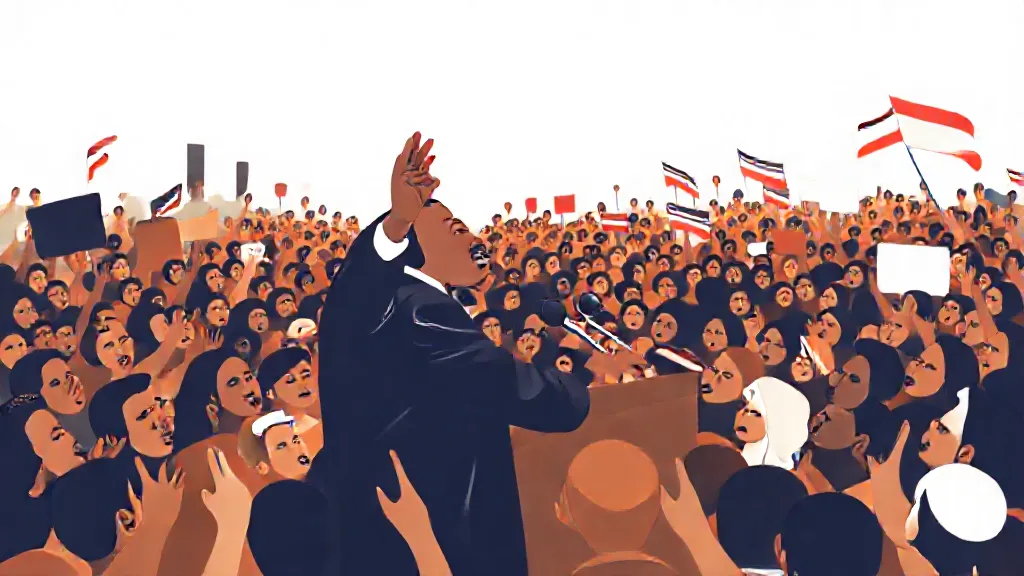Martin Luther King Jr. is a towering figure in the history of civil rights in the United States, whose influence extends far beyond his lifetime. His ability to inspire change was rooted in his profound understanding of social justice, equality, and the power of nonviolent resistance.
King’s methods and philosophy not only galvanized the African American community but also resonated with a diverse array of individuals and groups advocating for social change around the world.
The Philosophy of Nonviolence
At the core of King's approach was his unwavering commitment to nonviolence. Influenced by Mahatma Gandhi's principles, King believed that nonviolent protest was the most effective means to combat systemic racism and injustice.
He articulated this philosophy in many of his speeches and writings, emphasizing that violence would only perpetuate a cycle of hatred and retaliation. His famous "Letter from Birmingham Jail" serves as a profound declaration of this belief, arguing that “injustice anywhere is a threat to justice everywhere.” This message of interconnectedness not only inspired activists in the 1960s but continues to resonate today.
The Power of Oratory
King’s eloquence and ability to communicate complex ideas in an accessible manner played a significant role in his ability to inspire change. His speeches, most notably the "I Have a Dream" speech delivered during the 1963 March on Washington, were pivotal moments in the civil rights movement. Through vivid imagery and emotional appeals, King painted a vision of a racially integrated and harmonious America.
His oratory skills mobilized thousands to join the movement, transcending racial and geographic boundaries, and igniting a collective desire for change.
Grassroots Mobilization and Community Engagement
King’s strategy also included grassroots mobilization. He understood that real change required the involvement of everyday citizens.
By organizing community meetings, workshops, and marches, King empowered individuals to take an active role in the fight for civil rights. The Southern Christian Leadership Conference (SCLC), which King co-founded, played a crucial role in coordinating nonviolent protests and voter registration drives across the South. This emphasis on community engagement laid the groundwork for a more inclusive civil rights movement, allowing diverse voices to be heard.
Legislative Achievements and Policy Change
King’s activism directly contributed to significant legislative achievements in the United States. The Civil Rights Act of 1964 and the Voting Rights Act of 1965 were monumental victories for the civil rights movement, dismantling legal segregation and protecting voting rights for African Americans. King’s leadership during pivotal events, such as the Selma to Montgomery marches, highlighted the urgent need for legislative change, drawing national attention to the injustices faced by African Americans.
These acts were not only legislative milestones but also symbols of hope and progress in the ongoing struggle for equality.
Global Influence and Inspiration
The impact of King’s philosophy and activism extended beyond American borders. His commitment to nonviolence and social justice inspired movements worldwide, from anti-apartheid activists in South Africa to pro-democracy movements in Eastern Europe.
Leaders like Nelson Mandela and Desmond Tutu cited King as a significant influence on their own struggles for justice and equality. King’s legacy serves as a reminder that the fight for human rights is a global endeavor, transcending cultural and national boundaries.
Educational Legacy and Continued Relevance
King’s teachings remain relevant in contemporary discussions about race, justice, and equality.
Educational institutions often incorporate his writings and speeches into curricula, fostering discussions about civil rights, social justice, and nonviolent protest. His work encourages students to critically engage with issues of inequality and injustice, inspiring the next generation of activists. The annual Martin Luther King Jr.
Day serves not only as a celebration of his legacy but also as a call to action, urging individuals to continue the fight for social justice.
Conclusion: The Enduring Legacy of Martin Luther King Jr.
In conclusion, Martin Luther King Jr.
inspired change through his unwavering commitment to nonviolence, powerful oratory, grassroots mobilization, and significant legislative achievements. His influence transcends time and geography, serving as a beacon of hope and a call to action for those who seek justice and equality. As we reflect on his legacy, it is essential to recognize that the struggle for civil rights is ongoing, and King's teachings continue to inspire individuals and movements around the world to strive for a more just and equitable society.
